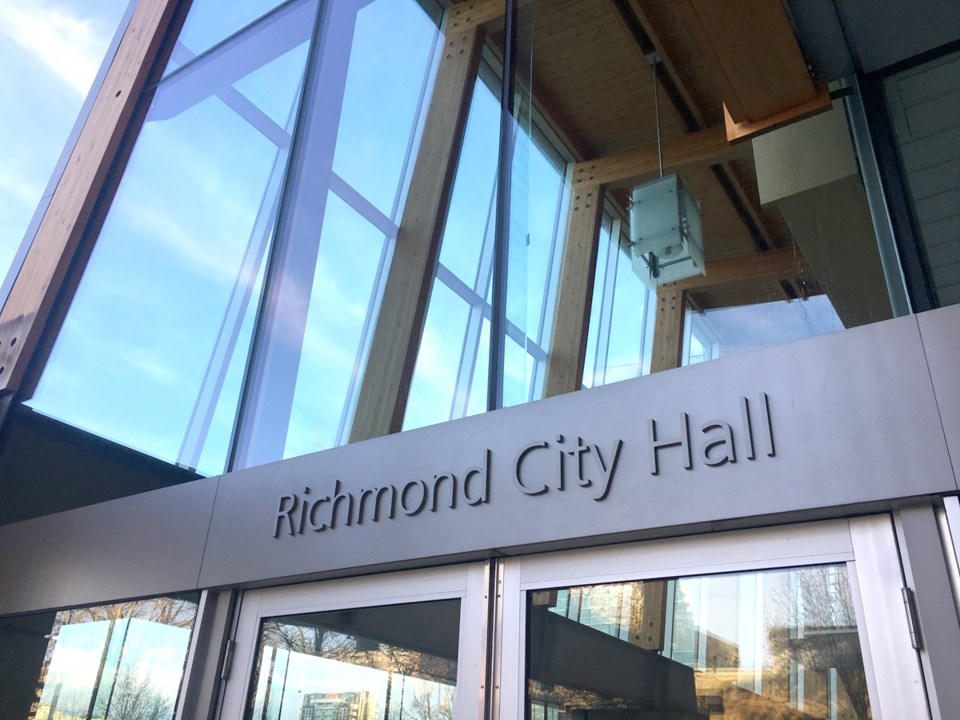To combat illegal cash transactions at Richmond City Hall, the finance committee is endorsing a limit of $10,000 for any cash payments.
In 2018, city hall accepted 30 payments in cash greater than $10,000 each, totalling about $500,000; all cash payments at city hall came to $10.8 million, or 2.2 per cent, for property taxes and utility fees.
At Monday’s finance committee meeting, Coun. Kelly Greene suggested further restricting the amount to $7,000, which staff said was the dollar value that captured 95 per cent of residential tax bills, but this was not supported by the majority.
Greene said, in her opinion, the city should be strict about cash receipts and that there is no legitimate reason to be carrying around thousands of dollars in cash.
“There’s really two big things that come to my mind and they’re tax evasion and the other is money laundering and neither of those is legal,” Greene said. “I don’t think we should make it comfortable for people to bring in large sums of money.”
There are several options to pay property taxes, she pointed out, for example, at a financial institute, online or at the counter at city hall.
But Richmond Mayor Malcolm Brodie said the $10,000 limit is a “reasonable approach,” and the city should see whether it works and fine tune it if necessary.
“We have to recognize that not everybody that brings in cash has some nefarious purpose,” he said. “People have cash for all kinds of different reasons.”
Earlier this year, Richmond city council asked senior governments for an investigation into money laundering, organized crime and illegal gambling as well as a public inquiry with the right to subpoena witnesses. In addition, council approved a larger budget for the RCMP and some of those officers will be involved in investigating organized crime, Brodie pointed out.
Staff came up with three options for council to consider, either continuing with the status quo of no cash limits, forbidding cash payments all together or limiting cash payments to less than $10,000 and they recommended they $10,000 limit. Challenges presented by cash payments include theft and robbery, extra insurance needed by the city, counterfeit bills and armoured car service costs, according to the staff report to the finance committee.
Unlike banks, credits unions, casinos insurance companies, real estate brokers and others, local governments are not required to report to FINTRAC (Financial Transactions and Reports Analysis Centre of Canada) cash payments over $10,000, but the City of Richmond has nevertheless been reporting the names, addresses and amounts of those paying more than $10,000 in cash.



